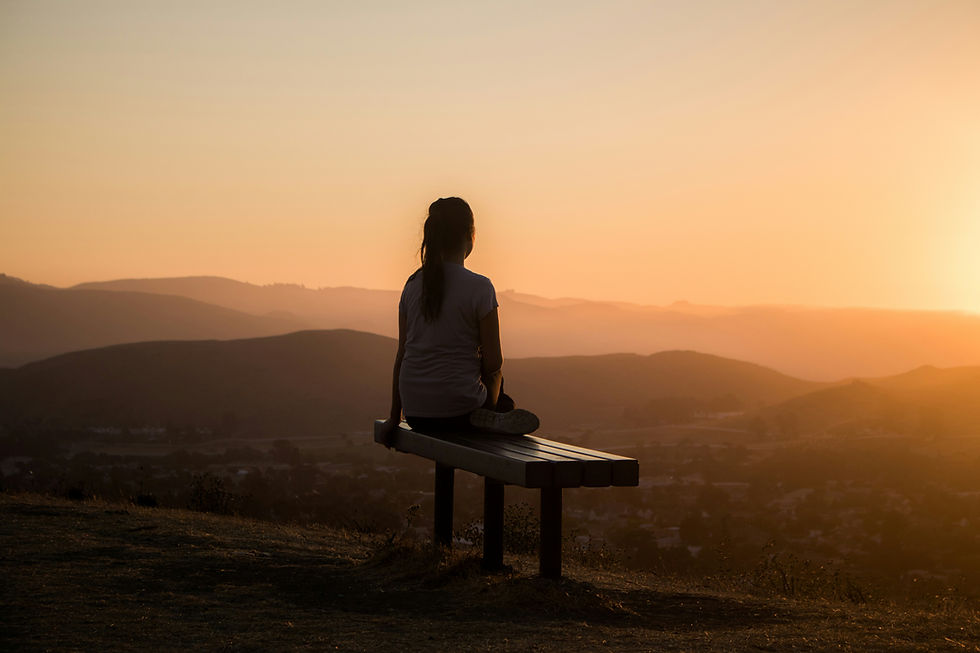The Power of Being Alone: Embracing Solitude for Growth and Balance
- Joyce Lynh Chan
- Jan 28
- 2 min read
I often see individuals struggle with the idea of being alone. For many, the thought of solitude triggers discomfort or unease. But what if I told you that being alone is not only a physical state but also a powerful tool for self-growth? Far from being something to fear, solitude allows us to connect deeply with ourselves, fostering clarity, creativity, and emotional balance.
We’ll explore the physical state of being alone, why it’s essential for personal well-being, and how to embrace solitude in a way that nurtures rather than isolates.
The Difference Between Alone and Lonely
It’s important to understand the distinction between solitude and loneliness. Being alone simply means there’s no one else physically present. Loneliness, on the other hand, is an emotional state that can feel heavy, disconnected, and longing for connection.
While loneliness can be draining, solitude can be empowering. It’s not about the absence of connection but about creating space for a deeper connection with yourself.

Why Being Alone Matters
Solitude Fosters Self-AwarenessTime alone allows for much-needed self-reflection. It gives space to explore thoughts and emotions that often get drowned out by the busyness of life. In solitude, there’s an opportunity to better understand your needs, desires, and goals, which is essential for personal growth.
Creativity Thrives in SolitudeSolitude is a fertile ground for creativity. Many breakthroughs and brilliant ideas come from moments of uninterrupted time to think and dream. When the mind is free from distractions, it can wander, imagine, and solve problems in ways that lead to innovation.
Emotional Resilience is Built in Quiet Moments
Being comfortable with solitude strengthens emotional resilience. It fosters independence, teaching us to rely on our own inner resources. This confidence helps us handle life’s challenges and reduces the need for constant external validation.

Practical Ways to Embrace Being Alone
Start Small
If being alone feels intimidating, begin with short, intentional periods of solitude. Take 10 minutes a day to sit quietly, journal, or meditate.
Turn Off the Noise
Instead of filling every moment with background distractions like TV or music, embrace silence. It might feel unfamiliar at first, but this quiet space is where clarity emerges.
Engage in Solo Activities
Explore activities that you enjoy doing by yourself, such as walking in nature, reading, or trying something creative. These moments can be deeply fulfilling and restorative.
Reflect on Your Experience
After spending time alone, ask yourself: How do I feel? What did I notice about my thoughts or emotions? Over time, these reflections can bring a sense of calm and understanding.

Embrace Solitude for a Better Balance
Being alone doesn’t have to feel isolating. When approached with intention, it can be a source of strength, creativity, and clarity. If you’re curious about how solitude can help you feel more balanced and connected, consider exploring it further.
I’m offering a free 15-minute consultation to help you assess where you are and uncover ways to create a better balance in your life. Let’s work together to harness the power of solitude.
Being alone isn’t just about physical space; it’s about creating emotional and mental space to grow and thrive. Solitude allows us to reconnect with ourselves, find balance, and live with greater intention.
Take the first step today—embrace the richness of solitude and all it has to offer.




Comments